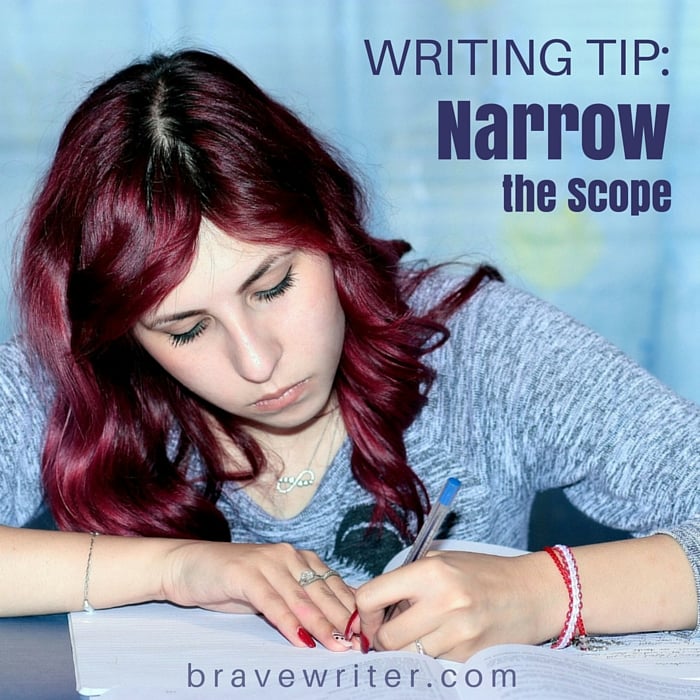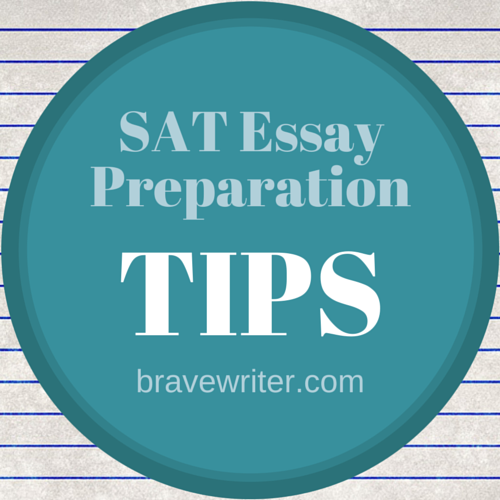
One of our brave moms asked how to fit academic writing into a Brave Writer Lifestyle. This is an excellent question because it brings up several issues that I thought worth addressing here.
First of all, academic writing doesn’t come naturally so it isn’t as likely to fit into a lifestyle the same way, say, poetry reading does. In other words, academic writing serves a limited function which isn’t likely to be repeated for enjoyment and personal fulfillment like fiction or journaling or freewriting. Even non-fiction article-style writing (as you might find in a blog) is much more apt to be incorporated into someone’s life than research papers and structured, closed-form essays.
That said, the student who is confident in her writing abilities will find academic writing a satisfying challenge at best and not too difficult to execute at worst. I like to suggest a writing project per month for other kinds of writing. When beginning the essay, take a bit more time (maybe 6-8 weeks).
The three recommended kinds of academic high school writing:
- the expository essay,
- the research paper,
- and the timed essay.
Let’s look briefly at what writing your kids have been doing that will support their growth in these three forms.
Essay writing is the rhetoric stage version of narration. When your kids are little, they narrate orally, for the most part. As they get older, you jot down their thoughts for them. Then they begin to write their own narrations some time around junior high.
Narrating is not limited to simple retelling. Your kids will narrow the focus of their interest and retell the aspect of the topic or story most important to them. They will learn to retell in their own words, using their personal experiences and knowledge base as sources of analogy and comparison, making the information their own.
The essay, then, is simply a more structured, analytical version of retelling. It goes one additional, new step. It incorporates research into the retelling. Open form, exploratory essays make use of research as a way to examine how an issue can be addressed through a variety of perspectives. Closed form, argumentative essays take a stand and use research to support the claim being argued.
The research paper is like the essay, but three times as long. It takes a larger topic, chooses a position and then writes the equivalent of three essays within it. The main differences between an essay and research paper are the amount of research and the length of the final paper.
Timed essay writing is the mature version of freewriting. If your kids are proficient freewriters, learning how to order timed writing is less of a step than it would be for other kids. Teach the essay first (without any time limits). Then use that format as a way to organize thoughts during the timed essay. Freewriting helps the student to become comfortable with writing under pressure. Timed essay writing requires the student to learn to control himself as he writes.
I suggest learning the expository essay first (both open and closed forms) and writing several in a year (maybe three or four). Then, if you want to do a research paper in high school (not required, imho), do one during your child’s junior year. Save timed essay writing for senior year of high school and devote at least one six week period to writing three or four per week.
Teach it first, but then do it, do it, do it. The best way to learn timed essay writing is to write them.





















